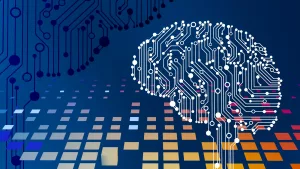The Internet of Things (IoT) has brought about significant advancements in home security systems, revolutionizing the way we protect our homes and loved ones. By connecting various devices and sensors to the internet, IoT enables homeowners to monitor and control their security systems remotely, providing greater convenience and peace of mind. The ability to access and manage security systems from anywhere at any time gives homeowners a heightened sense of control and security over their living spaces. One of the key implications of IoT for home security is the ability to integrate multiple devices and systems to create a comprehensive security ecosystem. For example, smart cameras, door locks, and motion sensors can all be connected to a central hub, allowing for seamless communication and automation of security processes. This integration not only enhances the overall efficiency of the security system but also provides a holistic approach to home security, ensuring all aspects are monitored and controlled.
The Power of Remote Monitoring
Remote monitoring is arguably one of the most transformative aspects of IoT-enabled home security. Homeowners can receive real-time notifications on their smartphones, alerting them to any unusual activity detected by their security systems. For instance, if a motion sensor is triggered or a door is unlocked unexpectedly, an alert is immediately sent. This instant notification system allows for quick responses to potential threats, whether you’re at work, on vacation, or simply out running errands.
Case Study: Smart Cameras in Action
Consider a homeowner who installed a series of smart cameras around their property. Using an app, they can view live feeds from these cameras, check the status of their home, and even speak through the cameras if needed. This real-time interaction not only deters potential intruders but also provides peace of mind knowing that any suspicious activity can be quickly addressed.
Practical Example: Vacation Peace of Mind
Imagine you’re on a two-week vacation. Traditionally, you might have asked a neighbor to keep an eye on your house. Now, with IoT, you can monitor your property directly. You can receive alerts if anyone approaches your doorstep, and even adjust your home’s lighting to simulate occupancy, thus deterring potential burglars.
Integration with Smart Home Devices
IoT goes beyond just standalone security devices. The integration with broader smart home systems, such as lighting and HVAC controls, adds another layer of security. For example, when a security breach is detected, the system can automatically turn on all lights, potentially scaring away intruders. Additionally, if smoke or carbon monoxide is detected, the system can alert homeowners while automatically shutting down HVAC systems to prevent the spread of harmful gases.
Practical Tip: Setting Up Automated Routines
Homeowners can create automated routines that activate when certain triggers occur. For instance, setting up a routine where all doors lock, and security cameras start recording when the system is armed at night can enhance security. These routines ensure that security measures are consistently applied without requiring manual intervention.
Real-Life Scenario: Evening Security Routine
Consider a routine that activates when you say, “Goodnight” into your smart speaker. This command could lock all doors, arm the security system, turn off interior lights except for a few strategic ones, and lower the thermostat. Such automation not only enhances security but also contributes to energy efficiency and convenience.
Data Privacy and Security Concerns
However, the increased connectivity and data sharing in IoT devices also raise concerns about data privacy and security. Hackers can exploit vulnerabilities in IoT devices to gain unauthorized access to homes, compromising personal information and security. It is crucial for homeowners to implement strong encryption protocols and regularly update their devices to mitigate these risks. Ensuring that all IoT devices are properly secured and that data encryption is robust is essential in safeguarding against potential cyber threats.
Best Practices for Securing IoT Devices
- Change Default Passwords: One of the simplest yet most effective steps is to change default passwords on all IoT devices.
- Regular Software Updates: Keep firmware and software up-to-date to protect against known vulnerabilities.
- Network Segmentation: Use a separate network for IoT devices, isolating them from sensitive data and other devices.
- Enable Two-Factor Authentication (2FA): Whenever possible, enable 2FA to add an additional layer of security.
- Disable Unnecessary Features: Turn off any device features you don’t use to minimize vulnerability exposure.
Case Study: A Lesson in Cybersecurity
A homeowner ignored notifications about firmware updates for their smart lock system. Unfortunately, a known vulnerability was exploited by hackers, who gained access to the home. This incident underscores the importance of staying current with software updates to protect against evolving threats.
Increased Vulnerabilities and Risks
Moreover, the interconnected nature of IoT devices can create new vulnerabilities and risks for home security. A security breach in one device could potentially compromise the entire system, leaving homes vulnerable to cyber attacks. Homeowners must stay vigilant and invest in robust cybersecurity measures to safeguard their IoT-enabled security systems. Regular security audits and updates are essential to identify and address any vulnerabilities before they can be exploited by malicious actors.
Common Mistakes to Avoid
- Neglecting Regular Updates: Skipping updates can leave devices vulnerable to threats.
- Underestimating Physical Security: Even the most secure digital systems require physical security measures, such as secured router placement.
- Ignoring Alerts: Failing to respond to alerts can allow small issues to escalate into larger problems.
- Using Weak Passwords: Simple or reused passwords are easy targets for hackers.
Practical Advice: Conducting a Security Audit
Perform a quarterly audit of your security system. Check for updates, review password strength, and ensure all devices are functioning correctly. This proactive approach can prevent potential breaches before they occur.
Future Trends and Innovations
Looking ahead, the future of IoT in home security promises even more advanced features and innovations. Artificial intelligence and machine learning algorithms can enhance the capabilities of security systems, enabling predictive analytics and proactive threat detection. These technologies can analyze patterns and behaviors to identify potential risks before they escalate, providing an additional layer of protection for homeowners.
AI and Machine Learning in Security
AI can process vast amounts of data from various sensors and devices to identify unusual patterns that may indicate a security threat. Machine learning algorithms continuously learn from past incidents to improve their predictive capabilities. This means that over time, the system becomes more adept at identifying genuine threats while reducing false alarms.
Example: AI-Enhanced Threat Detection
Imagine a security system that learns your family’s daily routines. If an unexpected entry occurs when everyone is usually out, the system can alert you and even contact authorities if needed. This smart analysis could significantly reduce false alarms, focusing attention on legitimate threats.
Voice Assistants and User-Friendly Interfaces
In addition, the integration of smart home devices with voice assistants like Amazon Alexa and Google Assistant offers a seamless and intuitive user experience, making home security systems more user-friendly and accessible. Homeowners can easily control their security systems with simple voice commands, such as “lock the doors” or “show me the front camera.”
Enhancing Accessibility
For elderly or disabled individuals, voice-controlled systems can be particularly beneficial. The ability to manage home security through voice commands or via a smartphone app ensures that these systems are accessible to everyone, enhancing overall security without the need for extensive technical knowledge.
Real-World Application: Accessibility in Action
A senior living alone might find it challenging to navigate complex security systems. With voice commands, they can easily secure their home without physical effort, ensuring their safety and independence.
The Importance of Educating Homeowners
As IoT devices become more prevalent, educating homeowners on best practices is crucial. Understanding how to properly configure, maintain, and secure these devices can significantly reduce the risk of cyber threats. Workshops, online tutorials, and guides provided by security companies can help homeowners make informed decisions and keep their systems secure.
Community Initiatives and Workshops
Local community centers or homeowner associations can organize workshops to educate residents about IoT security. These sessions can cover topics such as setting up devices, recognizing phishing attempts, and understanding privacy settings. By fostering a community-wide understanding, neighborhoods can collectively enhance their security posture.
Example: Neighborhood Security Program
A neighborhood initiative could involve monthly meetings where residents share recent experiences with IoT devices, discuss best practices, and invite experts to speak on the latest security trends. This communal approach not only builds a stronger network but also keeps everyone informed and prepared.
The Role of Professional Security Services
Despite the DIY nature of many IoT security solutions, professional security services still play a vital role. They offer comprehensive packages that include installation, monitoring, and maintenance, ensuring that all components of a security system work harmoniously.
Benefits of Professional Monitoring
- 24/7 Surveillance: Professional services provide round-the-clock monitoring, ensuring immediate response to any alarms or alerts.
- Expert Installation: Proper setup by professionals can prevent technical issues and ensure optimal performance.
- Regular Maintenance: Scheduled check-ups and updates keep the system running smoothly and securely.
Case Study: Professional Intervention
A homeowner with a DIY system experienced frequent false alarms. After consulting with a professional service, they upgraded to a monitored system. The false alarms ceased, and the homeowner gained confidence knowing experts were overseeing their security.
The Economic Impact of IoT in Home Security
The IoT revolution in home security isn’t just about safety—it’s also about economics. Smarter systems can lead to insurance discounts, increased property values, and energy savings.
Insurance Benefits
Many insurance companies offer discounts for homes with robust security systems. IoT devices can provide detailed logs and proof of security measures, strengthening claims and potentially reducing premiums.
Energy Efficiency
IoT security systems often integrate with other smart home devices to optimize energy use. For instance, smart thermostats can adjust based on occupancy, reducing energy waste and lowering utility bills.
Real Estate Value
Homes equipped with advanced security technologies are increasingly attractive to buyers. This can lead to higher property valuations and faster sales, as modern buyers prioritize smart home features.
Conclusion: Embracing IoT’s Potential
In the rapidly evolving landscape of IoT and home security, staying informed and proactive is key. As technology advances, so do the methods used by cybercriminals. By embracing the benefits of IoT while remaining vigilant about potential vulnerabilities, homeowners can enjoy a more secure and connected living environment. With continuous innovation and a focus on security best practices, the future of home security looks promising and robust. Whether through DIY efforts or professional services, the integration of IoT into home security represents a significant step forward in protecting what matters most.



